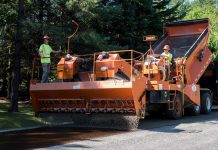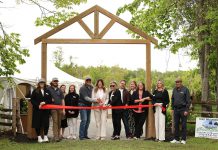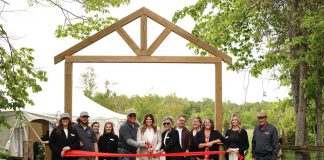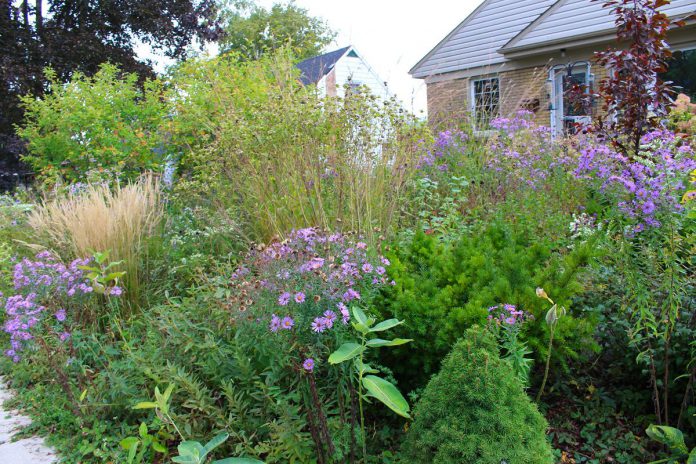
Are you looking for a fun activity and an easy way to make a positive contribution to our community? Well, it’s time to take a stroll through your neighbourhood and nominate water wise front yards!
Nominating a yard is a great way to show gratitude to your neighbour for reducing water consumption, increasing the beauty of the street, and creating habitat for native plants and pollinators. There is a nomination contest underway. For each nomination you submit by August 7th, you are entered to win a prize from the GreenUP Store & Resource Centre.
Water is important to protect. In the summer months, demands on water from activities including watering lawns and gardens can increase water consumption in Canada by as much as 50 per cent. One way to curb water use is to rethink the way we landscape our front yards to create water wise landscapes that reduce water demands.
Two gardeners, Erin McGauley and Chris Gooderham, comment on their 15 years of water wise experience:
“We love having a water wise garden. We aren’t purists: our garden has changed over the years from strictly native species to include other hardy plants, but choosing drought tolerant options reduces maintenance, helps local insects and saves us money on our water bills. We highly encourage more neighbours to add water wise species to their front yards.”
Some signs that a front yard may be water wise:
- Native and drought-tolerant plants are planted instead of a lawn
- A lawn is mowed higher, de-thatched, and left to brown when rain is scarce
- A rain barrel, or other method, is used to capture and use rain water
- The ground is covered in mulch or low-growing plants known as ground cover
- The yard has a tree or two, or more
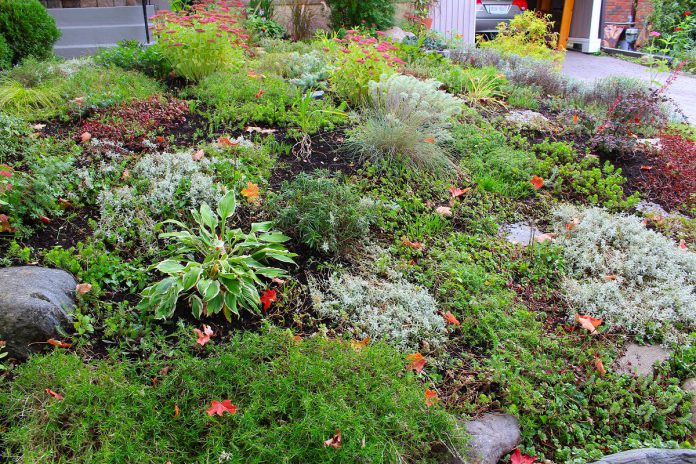
Take a look at the list above and then take a walk around your block. Let us know if any neighbours, including a local business, are making water wise choices.
If you have worked to implement water wise approaches, you can nominate your own yard as well.
We need your help to recognize and celebrate the efforts people are making to protect the water and invite biodiversity. Nominate a yard and help us grow the community of people who choose a water wise approach.
Why is becoming water wise important?
We can all agree that it is lovely to lay out a picnic in soft grass or play soccer on a lush field. Well-maintained grass has important purposes. However, how often do you see folks picnicking on their front lawns?
For many, a grassy front yard is there by default. For so long, a well-maintained front lawn (usually Kentucky Bluegrass) signalled wealth, prosperity, and that you are a respectable neighbour.
This idea is outdated. We are learning about our responsibility to nurture more biodiversity in urban environments.
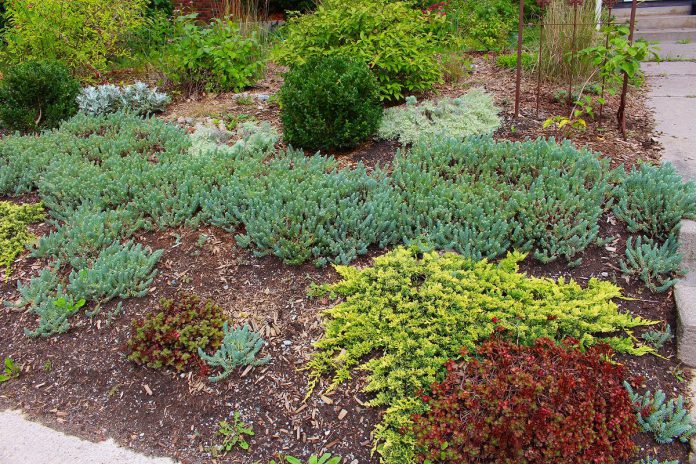
I recently discovered CBC Gem’s Frik, I Love Nature and enjoyed watching a number of episodes with my kids. Interesting and good-to-know nature information is shared in a fun and engaging way.
In an episode about cities, host Gordie Lucius explains a bit about the origin of lawns in North America: “Despite its name, Kentucky Bluegrass was introduced to North America in the 1600s by European settlers and is considered an invasive species”. Gordie also shares some incredible numbers:
- Kentucky Bluegrass covers 128,000 square kilometres across Canada and the US
- 66 per cent of household water is used to water lawns
- Collective time spent cutting grass across Canada and the US is 3,000,000,000 hours per year. Just think about what else could be done with all that time!
The Water Wise Landscape Recognition program normalizes the benefits of replacing a traditional lawn and educates about the benefits of more diversity in urban spaces.
Nina-Marie Lister, a professor at the School of Urban and Regional Planning at Toronto Metropolitan University, speaks to this in a recent CBC News article about introducing more biodiversity to front yards in Ottawa.
“It’s a little bit odd that we’re still adopting a kind of very old colonial mentality that the only thing for a yard is a monoculture or a single species of turf grass that it isn’t even native,” she says.
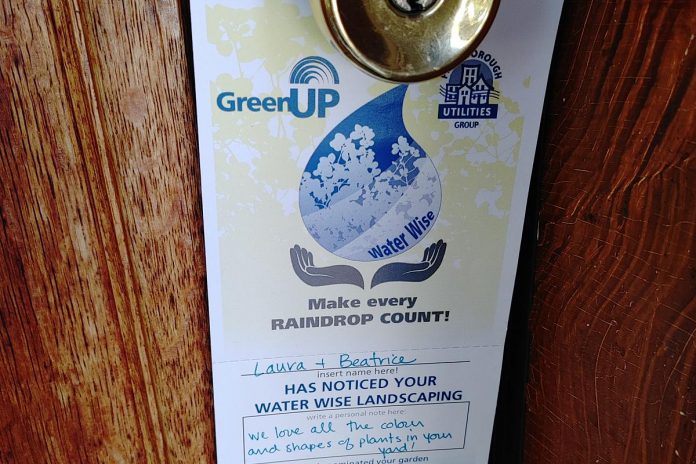
Making room in your yard for a variety of native species not only looks great and benefits the environment, but also requires less water and maintenance.
GreenUP offers the Water Wise Landscape Recognition Program with support from Peterborough Utilities Group. Together we recognize and celebrate the efforts of citizens and business owners in the City of Peterborough who are taking action to conserve and protect the water through sustainable landscaping methods.
Nomination forms can be found at greenup.on.ca/water-wise/. The nomination contest is open until August 7th at midnight.
We hope you can get out and nominate some wonderful water wise yards!
If you have any questions about the nomination process, please contact Laura Keresztesi at laura.keresztesi@greenup.on.ca.



